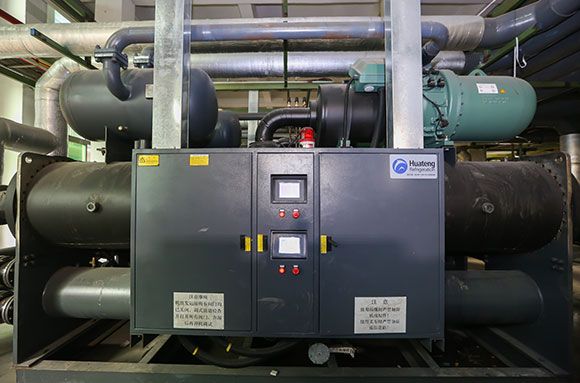Chillers play a crucial role in various industrial and commercial applications, providing efficient cooling for processes and facilities. However, like any complex machinery, chillers are prone to experiencing problems that can hinder their performance and lead to costly downtime. Understanding common chiller issues and implementing effective solutions is vital to ensure the smooth operation and longevity of your cooling system. In this article, we will delve into some of the most prevalent chiller problems and explore the best practices for resolving them.

1. Insufficient Cooling Capacity
One of the primary challenges faced by chiller systems is inadequate cooling capacity. This issue may arise due to various factors such as improper chiller sizing, scaling, or fouling of heat exchangers, and low refrigerant levels. When a chiller cannot meet the cooling demands of its application, it can lead to reduced efficiency and potential damage to the equipment.
Solution: To address insufficient cooling capacity, it is essential to conduct a thorough analysis of the chiller's load requirements and compare them with its rated capacity. If sizing is the problem, replacing the chiller with a correctly sized unit is the best solution. Regular maintenance and cleaning of heat exchangers and maintaining proper refrigerant levels can also significantly improve cooling efficiency.
2. Refrigerant Leaks
Refrigerant leaks are a common issue faced by chiller operators. Leaks not only impact the chiller's cooling performance but also contribute to environmental damage. Refrigerant leaks can occur due to corrosion, vibration, or faulty components.
Solution: Promptly identifying and repairing refrigerant leaks is crucial. Regular inspections and leak detection systems can help in early detection. Technicians should repair leaks and recharge refrigerant as needed. Adopting an environmentally-friendly refrigerant can also mitigate the environmental impact.
3. Water Flow Problems
Problems with water flow can disrupt the chiller's heat transfer process. Issues like clogged pipes, pump failures, or flow imbalances can lead to reduced efficiency and even cause the chiller to shut down.
Solution: Regularly monitor water flow rates and pressure differentials within the chiller system. Implement a robust maintenance schedule to clean and inspect pipes, pumps, and other components. Addressing flow imbalances and ensuring proper water treatment can also prevent water flow problems.
4. Electrical Malfunctions
Chillers rely on electrical components for their operation. Electrical malfunctions, such as motor failures, faulty wiring, or control system errors, can lead to chiller breakdowns and pose safety risks.
Solution: Regularly inspect and maintain electrical components of the chiller system. Perform routine tests on motors, electrical connections, and controls to identify potential issues before they escalate. Having a backup power supply or redundant components can also help ensure uninterrupted chiller operation during electrical failures.
5. Poor Chiller Maintenance
Inadequate or irregular maintenance is a common reason behind many chiller problems. Dust, debris, and mineral deposits can accumulate over time, reducing the system's efficiency and causing wear and tear on vital components.
Solution: Implement a comprehensive maintenance program that includes regular cleaning, inspection, and performance evaluation. Adhere to the manufacturer's guidelines for maintenance tasks and keep detailed records of all service activities. Proper maintenance will not only prevent issues but also prolong the chiller's lifespan.
Conclusion
Chiller problems can be a significant headache for businesses, causing disruptions, increased energy consumption, and costly repairs. However, with proactive maintenance and swift problem-solving, these issues can be mitigated effectively. Regularly monitoring the chiller's performance, promptly addressing malfunctions, and adhering to a robust maintenance regimen will keep your cooling system running smoothly, ensuring optimal efficiency and reliability for years to come.
Click Here to explore our comprehensive chiller solutions.





Comments
0